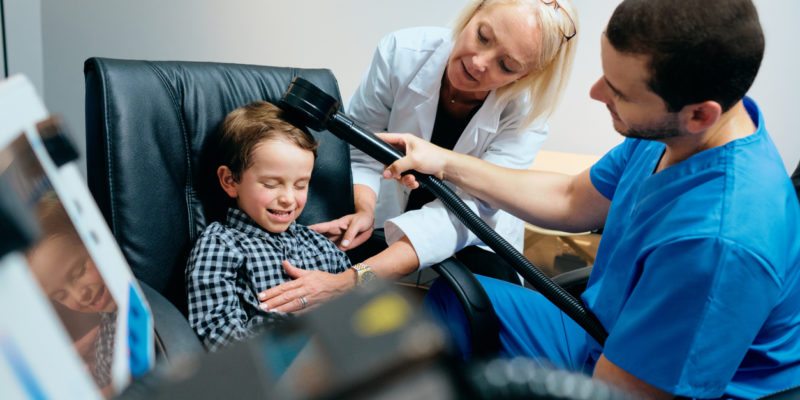If you have seizures or are the parent of a child who has seizures, then…

What Is Pediatric Neurology?
Pediatric neurology is the branch of medicine dealing with neurological conditions in children, from newborns through adolescents. Neurologists treat diseases and disorders of the nervous system. The nervous system includes the brain and nerves, but also the spinal cord, the peripheral nervous system, the autonomic nervous system, blood vessels and muscles.
A neurologist can handle diagnosis and treatment of diseases impacting those conditions. Your child’s pediatrician or another specialist may refer you to a pediatric neurologist for further testing or after making a preliminary diagnosis of a neurological condition. Sometimes, parents seek help from a pediatric neurologist without a referral from the child’s primary care physician if they recognize signs of a potential neurological disorder or disease.
Pediatric neurologists treat a number of different conditions. Some of the more common include:
- Strokes
- Epilepsy
- Birth defects impacting the nervous system
- Seizures
- Cerebral Palsy
- Muscular Dystrophy
- Learning Disabilities
- Developmental Disabilities
- Speech Disabilities
- Autism Spectrum Disorder
- Behavioral Disorders including ADD and ADHD
- Migraines and Other Headaches
- Head and Brain Injuries
- Hydrocephalus
- Neuromuscular Disorders
- Sleep Disorders
- Intellectual Disabilities
If it involves the nervous system, a neurologist may be part of your child’s care team. However, the most common reason for children to see a pediatric neurologist is epilepsy.
You may encounter a pediatric neurologist in a number of different medical environments. Some work primarily in children’s hospitals, where they treat children presenting with neurological issues. Others may work in outpatient medical facilities and focus on providing ongoing care for children in non-acute medical scenarios.
If you suspect your child has a condition impacting the nervous system, it is important to consult with a pediatric neurologist. Neurologists have specialized training and experience that other doctors do not have, which allow them to test for, recognize, and treat neurological conditions safely and more effectively than other doctors. They work in cooperation with the rest of your child’s healthcare team to bring about the best results for your child. In addition, neurologists have access to specialized equipment, which may be necessary if treating your child for an unusual neurological disorder.
If you suspect your child has a neurological disorder, it can be a very frightening time. Some parents are understandably reluctant to seek out a specialist because it can mean confirming some very scary concerns. At Neuro Center NJ, our caring and professional team works hard to make families feel at home. We become part of a team with a common goal: improving your child’s quality of life and creating better health outcomes.



